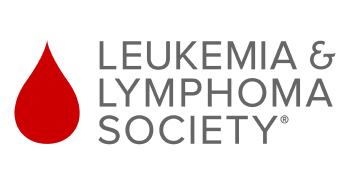Our Purpose
As of now, there has been initial success treating cancer with cell therapy, but there are still challenges. We see the potential to improve cell therapies, and we are fighting every day to deliver those improvements. Our goal is to enhance efficacy, reduce side effects, and improve accessibility.
Cell therapies are designed to help the body’s natural immune system fight diseases, like cancer. The cells (usually a type of immune cell called a “T cell”) are modified in a lab and then put back into the body to attack cancer cells.
Here at Arcellx, we’re focused on reimagining CAR-T cell therapy, which stands for chimeric antigen receptor (CAR) T cell (T) therapy. Other types of cell therapy include:
- Tumor-infiltrating lymphocyte (TIL) therapy
- Engineered T cell receptor (TCR) therapy
- Natural killer (NK) cell therapy
Some of the current challenges in CAR-T cell therapy include:
- Limited long-term benefit: FDA approved CAR-Ts may offer higher response rates compared to other available therapies, but efficacy as measured by the duration of response is highly variable.
- Adverse effects such as Cytokine Release Syndrome, neurotoxicity and “on-target, off-tumor” toxicities stifle the broader use of cell therapies in several key ways. Specifically, they limit the number of patients that are eligible for treatment and relegate these therapies to later lines of treatment.
- Narrow applicability as approved CAR-Ts are utilized in only a few hematological oncology indications.
We have integrated our D-Domain technology into cell therapy. With the unique attributes of the D-Domain, we are targeting to improve efficacy and safety of CAR-T therapy.
This technology has many potential applications. Our hope is that it will change how cancer is treated—and make treatment more accessible for the patients who need it.
At this time, Arcellx’s investigational therapies can only be accessed through participation in a clinical trial.
Key Terms
We get it—learning about cell therapy can feel like learning a new language. Here’s an overview of important terms.
Any substance that causes the body to make an immune response against it. Antigens include toxins, chemicals, bacteria, and viruses, and are present on some cancer cells. When present on a diseased cell, therapies can be developed to target that antigen.
A cell therapy engineered with our proprietary D-Domain technology designed to target specialized SparX proteins (also manufactured by Arcellx) that bind to cancer cells.
A type of treatment in which special cells are infused into a patient to replace or repair damaged cells.
T cells are modified to include binders that allow them to attach to antigens on diseased cells.
CAR-T (chimeric antigen receptor) is a type of cell that is grown in a laboratory and infused into a patient’s blood to treat certain cancers.
A cell therapy engineered with our proprietary D-Domain technology that targets an antigen on diseased cells. Our first ddCAR is anitocabtagene autoleucel which is targets the B-cell maturation antigen (BMCA), which is present in some multiple myeloma cells.
Our proprietary cell therapy technology: a tiny but powerful binding agent that can be designed to target antigens associated with diseased cells.
Also called T lymphocytes and thymocytes, T cells work to protect the body from infections and may help fight cancer.


